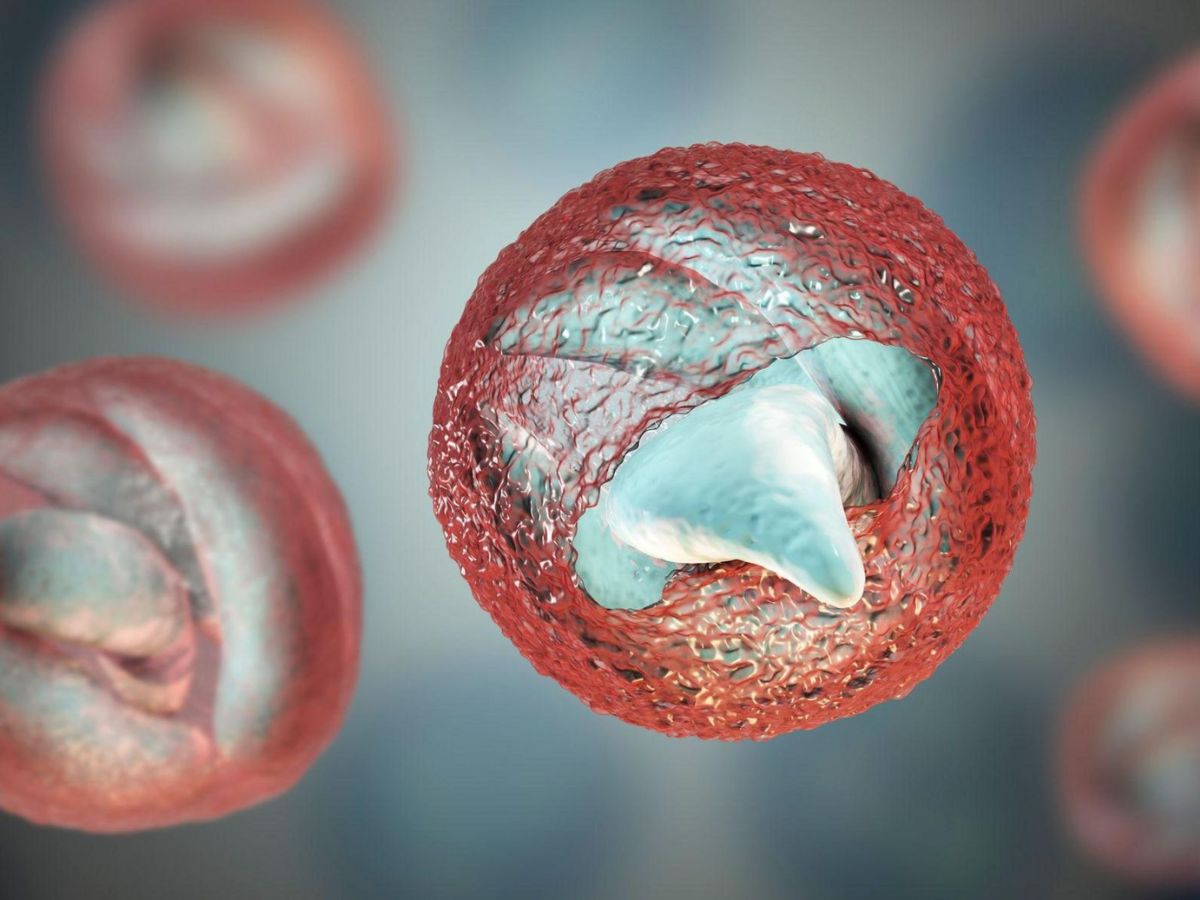
Cryptosporidium, often lurking in water, is a microscopic parasite causing the diarrheal disease cryptosporidiosis. Despite its tiny size, its impact on public health is significant, affecting both humans and animals worldwide. This parasite thrives in water bodies, making it a concern for water safety and public health. Understanding Cryptosporidium is crucial for preventing outbreaks and ensuring water safety. In this blog post, we'll unveil 20 intriguing facts about Cryptosporidium, shedding light on its characteristics, how it spreads, and measures to combat it. Whether you're a health enthusiast, a professional in the field, or simply curious, these insights will equip you with essential knowledge about this often-overlooked parasite.
Key Takeaways:
- Cryptosporidium, or "Crypto," is a tiny parasite that causes diarrheal disease. It spreads through contaminated water, person-to-person contact, and consuming contaminated food. Recognizing symptoms and practicing good hygiene are crucial for prevention.
- Crypto poses challenges to public health, especially in water parks and childcare centers. Recent developments offer hope, including new testing methods, research on the parasite's genome, and potential vaccine development. Preventing Crypto in animals involves maintaining clean living conditions and practicing good hygiene.
What is Cryptosporidium?
Cryptosporidium, often referred to as "Crypto," is a microscopic parasite that causes the diarrheal disease cryptosporidiosis. Both the disease and the parasite are commonly known as "Crypto." This parasite is one of the most frequent causes of waterborne disease among humans in the United States.
-
Crypto is found in soil, food, water, or surfaces that have been contaminated with the feces from infected humans or animals.
-
Humans and animals can become infected by swallowing water or food contaminated with Crypto.
How Does Cryptosporidium Spread?
Understanding how Crypto spreads is crucial for preventing and controlling outbreaks.
-
Swallowing Crypto directly from recreational water sources such as swimming pools, hot tubs, and water parks is the most common method of transmission. These places often have water that is contaminated with feces.
-
Person-to-person contact is another significant way Crypto spreads. This includes direct contact with infected individuals, especially in childcare settings or households with infected individuals.
-
Consuming contaminated water or food can also lead to infection. Crypto can survive in cold and chlorinated water for long periods, making it a tough parasite to eliminate.
Symptoms of Cryptosporidiosis
Recognizing the symptoms of cryptosporidiosis is key to seeking timely treatment.
-
Diarrhea is the most common symptom of a Crypto infection, often accompanied by stomach cramps or pain.
-
Dehydration, nausea, vomiting, fever, and weight loss are other symptoms that infected individuals may experience.
-
Symptoms can appear 2 to 10 days after becoming infected with the parasite and can last for up to two weeks.
Treatment and Prevention of Cryptosporidiosis
While there's no specific treatment for cryptosporidiosis, there are ways to alleviate symptoms and prevent infection.
-
Staying hydrated is crucial for individuals infected with Crypto, as diarrhea and vomiting can lead to dehydration.
-
Anti-parasitic medication may be recommended in some cases, especially for individuals with weakened immune systems.
-
Practicing good hygiene—like washing hands thoroughly and often—can help prevent the spread of Crypto.
-
Avoiding swallowing water from lakes, rivers, pools, and other recreational water sources can also reduce the risk of Crypto infection.
Cryptosporidium's Impact on Public Health
Crypto poses significant challenges to public health due to its resilience and the ease with which it spreads.
-
Outbreaks of cryptosporidiosis are often linked to water parks, childcare centers, and public swimming pools where the parasite can easily contaminate water.
-
Crypto is resistant to chlorine disinfection, making it harder to eliminate from contaminated water sources than other pathogens.
-
People with weakened immune systems, such as those with HIV/AIDS, are at a higher risk of severe and potentially life-threatening illness from Crypto.
Recent Research and Developments
Recent studies and developments offer hope for better detection and treatment of Crypto infections.
-
New testing methods have been developed that can quickly and accurately detect Crypto in water and human samples, helping to prevent outbreaks.
-
Research on Crypto's genome has provided insights into how the parasite survives and infects hosts, paving the way for potential new treatments.
-
Vaccine development is underway, with several candidates showing promise in early trials. This could significantly reduce the incidence of cryptosporidiosis in the future.
Cryptosporidium in Animals
Animals, particularly livestock and pets, can also be carriers of Crypto, affecting both their health and the risk of transmission to humans.
-
Young animals such as calves and lambs are especially susceptible to Crypto and can suffer from severe symptoms.
-
Preventing Crypto in animals involves maintaining clean living conditions, providing clean drinking water, and practicing good hygiene when handling animals.
A Final Glimpse at Cryptosporidium
Cryptosporidium, often lurking in water, is a tiny parasite that's tougher than it looks. It causes cryptosporidiosis, a gut-wrenching condition, especially in folks with weaker immune systems. Remember, boiling water is your best bet against it since chlorine treatments don't phase it. Surprisingly, it's not just a human concern; animals can get it too, highlighting the need for good hygiene practices around livestock and pets. Awareness and preventive measures can significantly reduce the risk of infection. So, next time you're about to dive into a pool or sip on untreated water, think about the invisible threat of Cryptosporidium. It's a small but mighty reminder of the importance of water safety and hygiene in keeping us healthy.
Frequently Asked Questions
Was this page helpful?
Our commitment to delivering trustworthy and engaging content is at the heart of what we do. Each fact on our site is contributed by real users like you, bringing a wealth of diverse insights and information. To ensure the highest standards of accuracy and reliability, our dedicated editors meticulously review each submission. This process guarantees that the facts we share are not only fascinating but also credible. Trust in our commitment to quality and authenticity as you explore and learn with us.
